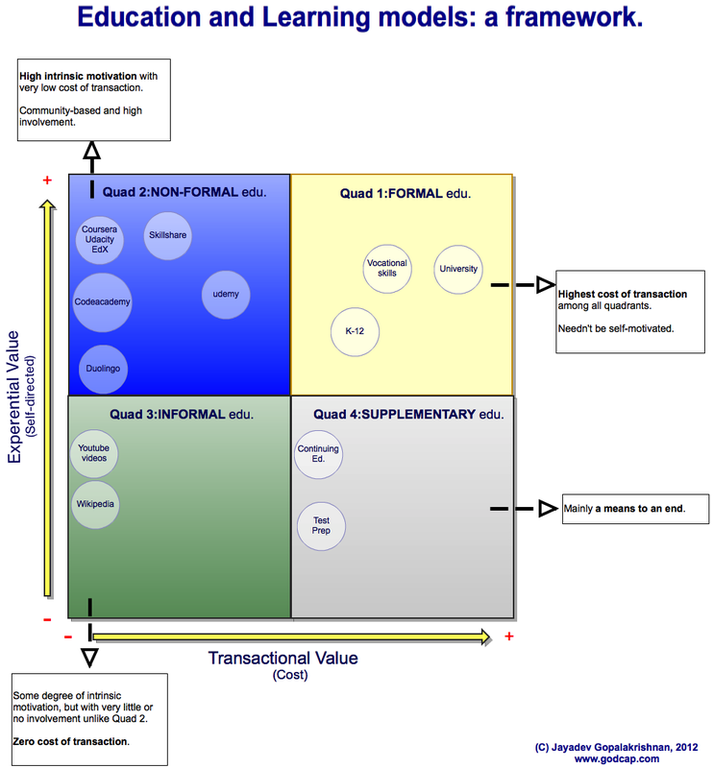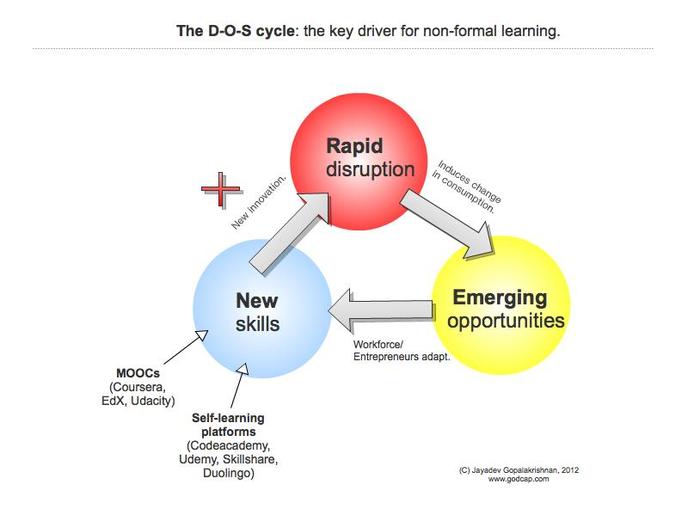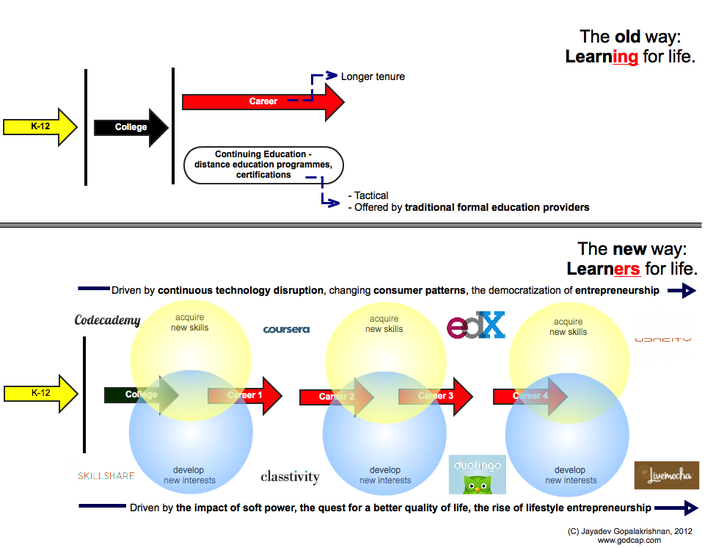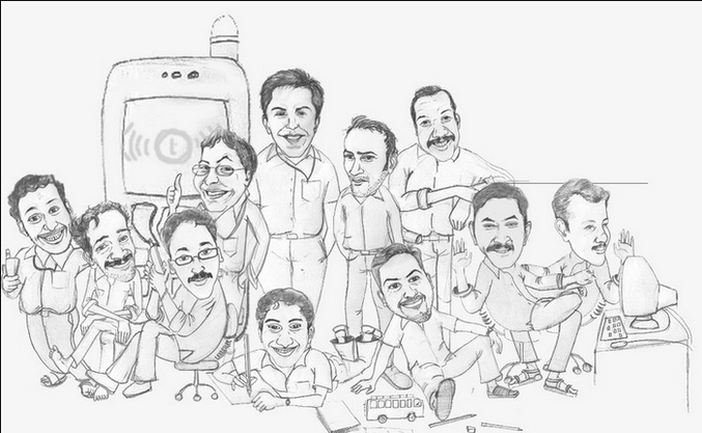I would love to hear views and comments to help refine and distil my thoughts further.
1. Our motivation to learn.
2. The cost involved in learning.
This framework uses two axes: Transactional Value (the cost of exchange) and Experiential Value (the degree of self-direction).
The model divides the various learning models into four categories each with an associated level of Transactional and Experiential Value.
1. Formal Education
- High level of Transactional + Experiential value (eg: Harvard).
- The most expensive channel compared to the other quadrants.
- The degree of cost and self-direction could vary as indicated in the framework between schools, vocational institutions and university.
- Participants expect certification and recognition.
2. Non-formal Education
- Low level of Transactional (free/very low cost) + High level of Experiential Value (eg: Coursera, Udacity, Skillshare, Codeacademy, Udemy).
- Taps the 'iterative and on-demand' skills requirements of the new economy.
- Embodies a very high level of intrinsic motivation, deep involvement in the learning process and a sense of community.
- Cost is negligible compared to formal education.
- Participants look at acquiring specific skills and outcomes and are willing to spend time and money. Certification is not the key driver.
3. Informal Education
- Low level of Transactional (free/very low cost) + Low level of Experiential Value (eg: Youtube videos, Wikipedia articles)
- Interest-driven to some extent, but with less involvement and without any specific intention/outcome in mind.
- Participants' interest in the subject could be fleeting.
4. Supplementary Education
- High level of Transactional + Low level of Experiential Value (eg: Test prep, Continuing Education)
- Only a means to an end.
- Participants have less or no motivation through the learning experience.
What does this mean?
Formal education (Quadrant One) will be fuelled by new solutions and tools. Breaking into a well-entrenched school system with heterogeneous boards across the world is tough. While solutions such as advanced LMS tools and tablet-based education will help in improving the quality of delivery and learning processes, it might not cause any fundamental disruption and changes in the way K-12 works. One opportunity that I see is in creating a K-12 model with an open-syllabus which can be modified and customized by home-schoolers/communities with an accreditation model built in. Considering it's a lifestyle choice with its own set of unique challenges, home/community-based K-12 schooling has the potential to take a whole new direction leveraging technology and online models.
Non-formal education (Quadrant Two) channels play to the emerging needs of the new world and the path provided by an intersection of the desire for personal and professional development. Education today is not just about a degree, but about building a web of skills and interests. The new education platforms and marketplaces provide people the opportunity to build their lives using these skills and interests at costs, previously unimaginable. Platforms such as MOOCs (Coursera/Udacity) and vertical education providers (Codeacademy) operate in this quadrant. This is why I believe these are businesses which have a high chance of success (as I argued in my earlier post). Accreditation will further drive faster adoption of these platforms as a credible source, though it will be fraught with several issues for some time – like getting the nod from important stakeholders such as the large Accreditation bodies and getting the buy-in from Employers to use these certifications as a proof of ability.
Informal education (Quadrant Three) will be a huge catalyst providing new tools for the Non-formal education (Quadrant Two) platforms to keep improving the delivery experience and lowering costs.
Some players in the Supplementary education (Quadrant Four) will eventually shift to the Non-formal quadrant (example: Continuing Education) with several test-prep providers adopting technology and tools to maximize scale of reach and lower the cost of consumption.






 RSS Feed
RSS Feed